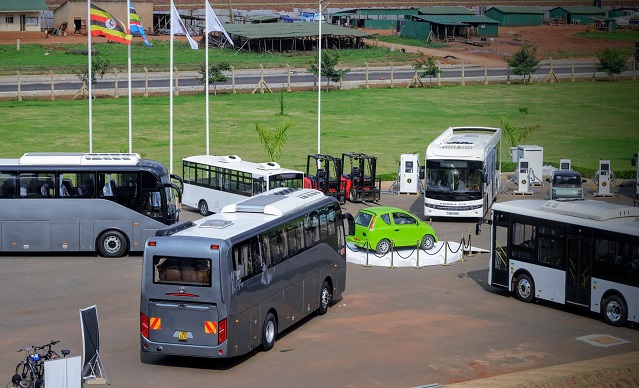Disadvantages of electric cars

While electric cars (EVs) offer numerous benefits, they also come with certain disadvantages that potential buyers should consider. Understanding these drawbacks can help you make a more informed decision about whether an electric vehicle is right for your needs. Here are some of the main disadvantages of electric cars:
- Higher Upfront Cost
- Purchase Price: Electric vehicles generally have a higher initial purchase price compared to their internal combustion engine (ICE) counterparts. This is primarily due to the cost of lithium-ion batteries, which are a significant component of EVs.
- Battery Replacement: Although battery technology is improving and prices are gradually decreasing, replacing a battery pack can still be expensive, potentially adding to the long-term costs.
- Limited Driving Range
- Range Anxiety: Many EVs have a shorter driving range on a single charge compared to the range of gasoline-powered vehicles on a full tank. This can lead to “range anxiety,” where drivers worry about running out of battery power before reaching their destination or the next charging station.
- Variation Among Models: While some modern EVs offer impressive ranges, lower-priced or older models may still have limited mileage per charge, making them less suitable for long-distance travel.
- Charging Infrastructure Challenges
- Availability: Although charging infrastructure is expanding, it is not yet as widespread or accessible as gas stations, especially in rural or remote areas. This can make long trips or travel in less developed regions more challenging.
- Home Charging Requirements: Installing a home charging station can involve additional costs and may not be feasible for those living in apartments or without dedicated parking spaces.
- Longer Refueling Times
- Charging Speed: Recharging an EV takes significantly longer than refueling a gasoline vehicle. Even with fast chargers, it can take anywhere from 30 minutes to several hours to achieve a substantial charge, compared to a few minutes to fill up a gas tank.
- Planning: Longer charging times require more careful trip planning, especially for long-distance travel, which can be inconvenient compared to the quick refueling process of ICE vehicles.
- Battery Life and Degradation
- Degradation Over Time: EV batteries gradually lose their capacity to hold a charge over time, which can reduce the vehicle’s range and overall performance. While most manufacturers offer warranties for battery life, replacement can be costly.
- Performance in Extreme Conditions: Battery efficiency can be affected by extreme temperatures, leading to reduced range and performance in very hot or cold climates.
- Environmental Impact of Battery Production and Disposal
- Resource Extraction: The production of lithium-ion batteries requires the extraction of minerals like lithium, cobalt, and nickel, which can have significant environmental and ethical implications, including habitat destruction and labor concerns.
- Recycling Challenges: Proper disposal and recycling of EV batteries are essential to minimize environmental impact. However, recycling infrastructure is still developing, and improper disposal can lead to environmental contamination.
- Limited Model Availability
- Fewer Choices: Although the variety of EV models is increasing, there are still fewer options compared to traditional gasoline and diesel vehicles, particularly in certain vehicle categories like trucks and SUVs.
- Market Availability: Some regions may have limited availability of specific EV models, restricting consumer choices based on location.
- Potential for Higher Insurance Costs
- Insurance Premiums: Electric cars can sometimes have higher insurance premiums due to their higher purchase prices and the cost of repairing specialized components like batteries and electric drivetrains.
- Specialized Repairs: Repairs for EVs often require specialized knowledge and parts, which can contribute to higher insurance costs and longer repair times.
- Dependency on Electricity Supply
- Electric Grid Reliability: The performance and convenience of EVs are dependent on a reliable electricity supply. In areas with unstable or insufficient power grids, charging an electric car can be problematic.
- Energy Source: The environmental benefits of EVs are maximized when they are charged using renewable energy sources. In regions where electricity is primarily generated from fossil fuels, the overall carbon footprint of EVs may be less favorable.
- Limited Towing and Payload Capacity
- Performance Limitations: Many electric vehicles, especially smaller models, have limited towing and payload capacities compared to traditional trucks and SUVs. This can be a drawback for those who need to tow trailers, boats, or carry heavy loads regularly.
- Resale Value Uncertainty
- Depreciation: The long-term resale value of electric cars is still uncertain compared to traditional vehicles. Factors such as battery degradation, rapid advancements in EV technology, and market demand can influence depreciation rates.
- Market Evolution: As the EV market evolves, newer models with better features and longer ranges may impact the desirability and value of older electric models.
- Limited Availability of Service Centers
- Specialized Maintenance: Electric cars require specialized maintenance and repairs, which may not be readily available in all areas. This can lead to longer wait times for service and potentially higher maintenance costs.
- Training and Expertise: Mechanics and service technicians need specific training to work on electric vehicles, which can limit the availability of qualified service centers, especially outside major urban areas.
- Initial Infrastructure Investment
- Charging Stations: Widespread adoption of electric cars requires significant investment in charging infrastructure, both public and private. This is a challenge that many regions are still working to address.
- Home Modifications: For optimal use of an EV, some homeowners may need to invest in home charging solutions, which can involve electrical upgrades and installation costs.
- Performance in Extreme Weather
- Battery Efficiency: In extremely cold or hot weather, battery efficiency can decrease, leading to reduced range and longer charging times. Additionally, climate control systems in EVs can drain the battery more quickly in such conditions.
- Comfort and Performance: Maintaining optimal battery temperature may require additional energy, impacting overall vehicle performance and efficiency during extreme weather.
- Technology Maturity
- Evolving Technology: Electric vehicle technology is rapidly evolving, which can make current models feel outdated quickly as new advancements emerge. This rapid pace of change can be a concern for buyers worried about future-proofing their investment.
- Software Reliability: As EVs often rely heavily on software for various functions, bugs or issues with software updates can affect vehicle performance and user experience.
While electric cars present a promising and sustainable alternative to traditional vehicles, these disadvantages highlight the importance of considering your specific needs, lifestyle, and local infrastructure when deciding whether an EV is the right choice for you. As technology continues to advance and infrastructure improves, many of these drawbacks are likely to diminish over time.
Do you have an advertisement or article you want to publish? Mail us at theugreports@gmail.com or WhatsApp +256394700683.





